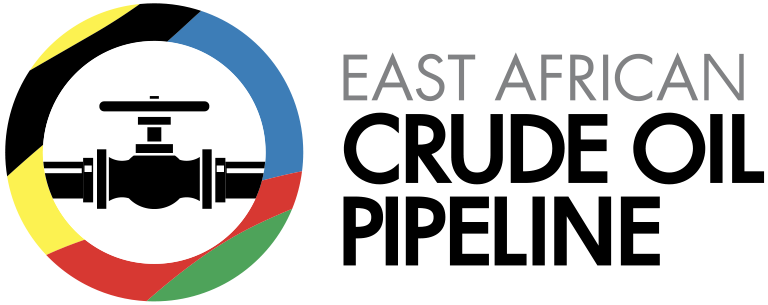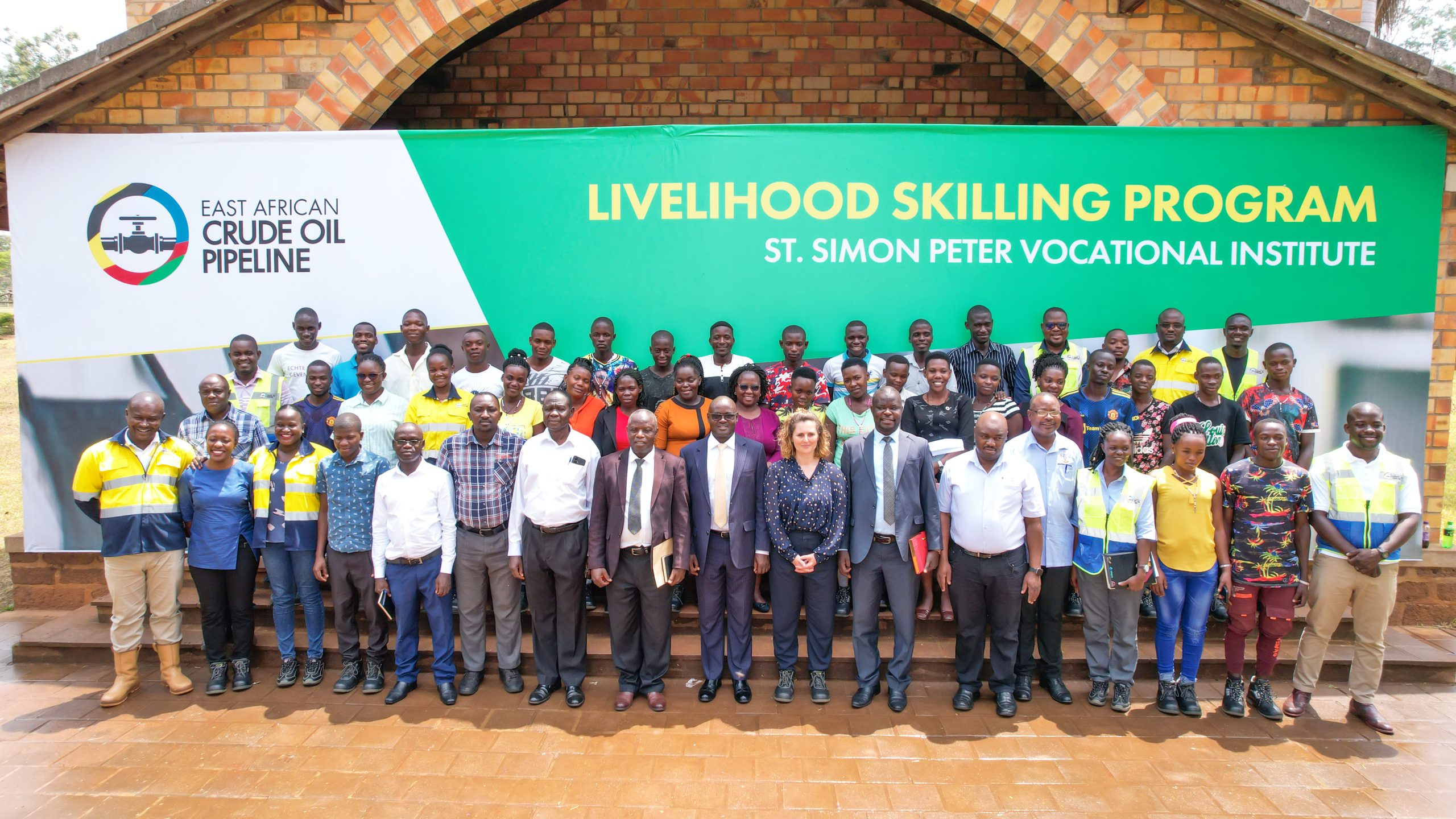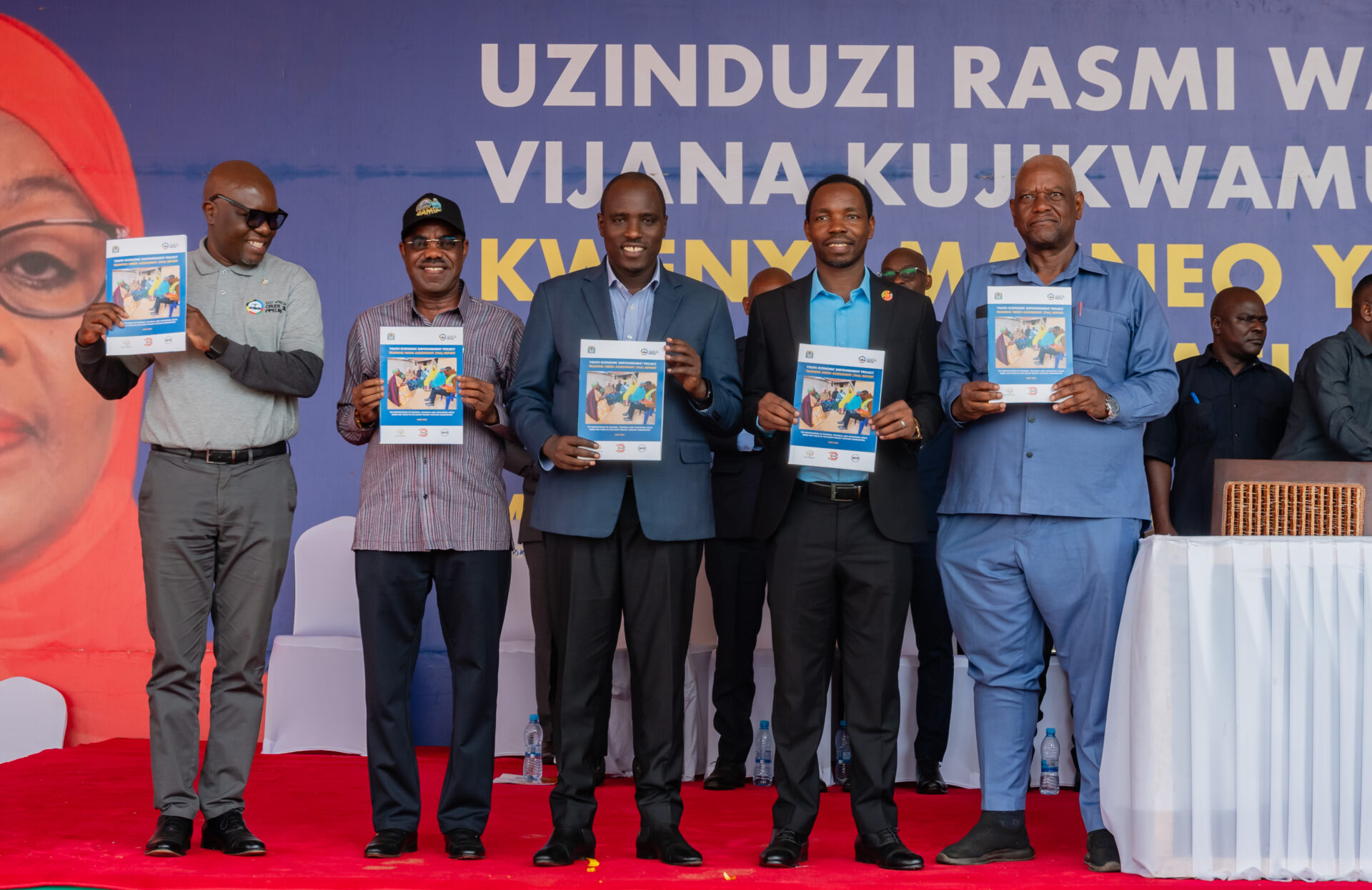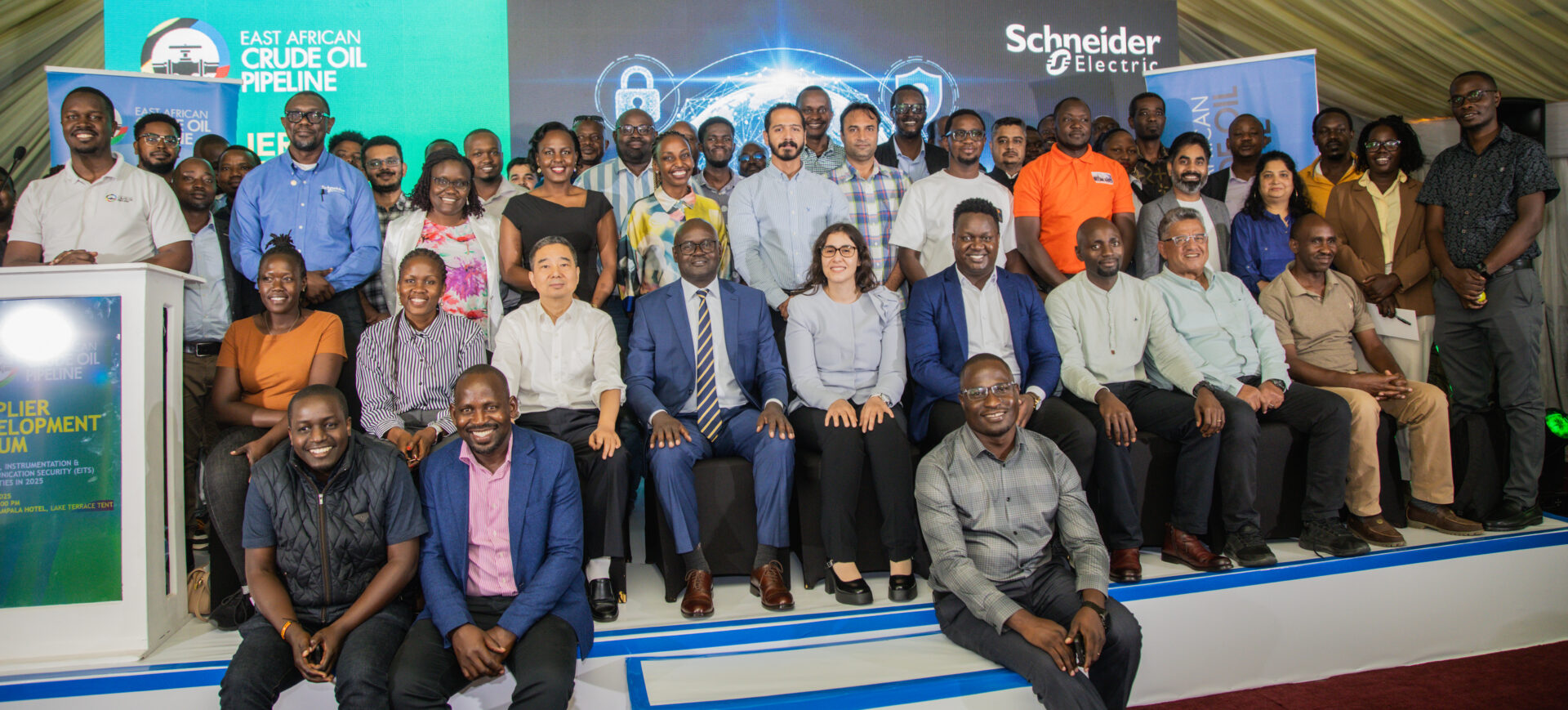The East African Crude Oil Pipeline (EACOP) Ltd, has inaugurated a vocational training program at selected institutions in Hoima District as part of the livelihood restoration program to equip young members of eligible Project Affected Households (PAHs) with skills that can increase their opportunities to gain employment or set up and/or grow new enterprises, thereby increasing their income.
The short-term vocational courses have been given to two youth in each eligible household and include Fashion and design, Catering, Driving, Motor vehicle & Motorcycle mechanics, hair dressing, Tailoring and Garmet design, welding, Plumbing, electrical installation, building and Construction studies, video and photography, Computer & secretarial studies.
The training program started with a total of 35 youth from Project affected Households in Hoima, and Kakumiro Districts. These will receive training from St. Simon Peter Vocational Training Center in Hoima District.
Speaking at the ceremony, Mr. John Bosco Habumugisha, EACOP Ltd Deputy Managing Director, said “We believe that equipping these youth with appropriate skills will provide them an opportunity to increase their capacity to start their own enterprises or engage in productive activities that can enhance their household incomes.”
The project through the contractors has supported the Youth with tuition, scholastic materials, and a modest starter pack where applicable after completion.
About the Livelihood restoration program
- Project-related land acquisition/restrictions leads to a loss/access of assets that leads to loss of income sources or other means of livelihood.
- The objective of the Livelihood Restoration Program is to provide project affected persons whose livelihoods or income levels are adversely affected an opportunity to improve, or at least restore, their means of income-earning capacity, production levels, and standards of living.
Livelihood restoration is going to be implemented in two phases.
Phase 1:
Provide transitional support to households as a short-term measure to support their food security in terms of Dry rations/ food baskets within the first 6-12 months as soon as the affected Households vacate land. The amount you receive and how long your supported depends on how heavily you have been impacted.
Phase 2 & 3:
Provide Households with opportunities and support to improve their livelihoods back to pre-project levels through Agricultural Improvement activities and also enhancing skills of household members through vocational training. Phase 3 involves additional optional packages that will be delivered to PAHs after Phase 2.
Those PAHs assessed to have been affected will be supported with both short term transitional support in the form of dry rations and thereafter be enrolled on the agricultural improvement program and vocational training for selected youth in the affected households.
- The nature of support and duration depends on how heavily you will have been impacted.
- Commencement of Livelihood support begins as soon as PAPs vacate the land and support will begin with PAPs in priority areas (MCPYs) where land acquisition will be acquired first.
- The students that will receive Vocational training are from Project affected households in the Priority Areas (Material Camps and Pipe Yards- MCPYs). Other students from the rest of the Pipeline Area will be enrolled in season 2 that begins in August 2023.
- For easy coordination, we have divided the 10 districts through which the ROW crosses into two sections, i.e., the South and North. The south section covers districts of Sembabule, Gomba, Lwengo, Kyotera and Rakai and the North covers districts of Hoima, Kikuube, Kyankwanzi, Kakumiro and Mubende.
